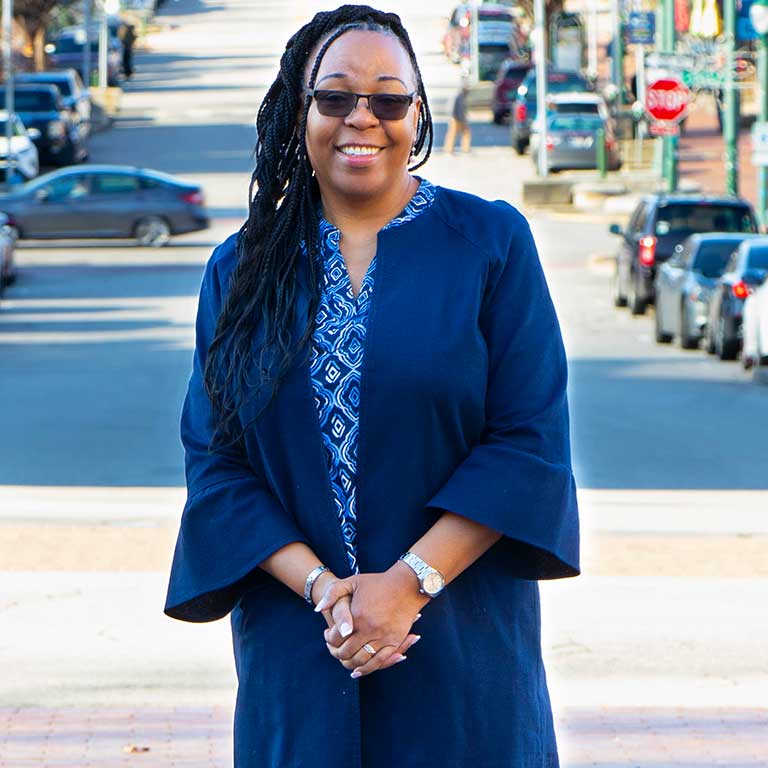An Advocate for Lasting Change
Professor Pamela Braboy Jackson is the first associate vice president for Faculty and Belonging at Indiana University. She began a five-year term in this position on June 1, 2022.
 Prof. Jackson was born in Chicago, Illinois. She completed her undergraduate degree at DePaul University and went on to receive her Ph.D. from Indiana University Bloomington. She joined the faculty at IU as an associate professor after serving as an assistant professor at Duke University. She was promoted to full professor at IU in 2006.
Prof. Jackson was born in Chicago, Illinois. She completed her undergraduate degree at DePaul University and went on to receive her Ph.D. from Indiana University Bloomington. She joined the faculty at IU as an associate professor after serving as an assistant professor at Duke University. She was promoted to full professor at IU in 2006.
Her research and teaching interests include social psychology, mental illness, race and ethnicity, and life course processes. These interests are captured in her book How Families Matter: Simply Complicated Intersections of Race, Gender and Work (by Pamela Braboy Jackson, Rashawn Ray, Paperback | Barnes & Noble® barnesandnoble.com)
Prof. Jackson has served in the Bloomington community as a commissioner with the Bloomington Human Rights Commission; co-facilitator with the Noah’s Ark working group on “Racism, Privilege, Faith, and Healing;” and as a member of the Community Advisory Board for the Centerstone, “Mental Health & Policing” Grant.
Besides serving on several departmental, university-wide, and professional committees within her field of sociology, she was the founding and inaugural director of the Center for Research on Race and Ethnicity in Society (CRRES) from 2012 to 2014 as well as the director of undergraduate (from 2017-2021) and graduate (2021-2023) studies in the Department of Sociology. In 2021, Prof. Jackson was named Provost Professor of Sociology and recipient of the Tracy M. Sonneborn Award (Departmental News: News & Events: Department of Sociology: Indiana University Bloomington).
She continues to be recognized in her field, having been named the 2023 recipient of the James R. Greenley Award from the Society and Mental Health section of the Society for the Study of Social Problems. This award acknowledges "...distinguished contributions to the sociology of mental health." She is also the 2024 recipient of the Leo G. Reeder Award. This award "...recognizes scholarly contributions, especially a body of work displaying an extended trajectory of productivity that has contributed to theory and research in medical sociology...[and] acknowledges teaching, mentoring, and training as well as service to the medical sociology community broadly defined" and is granted by the Medical Sociology Section of the American Sociological Association.

